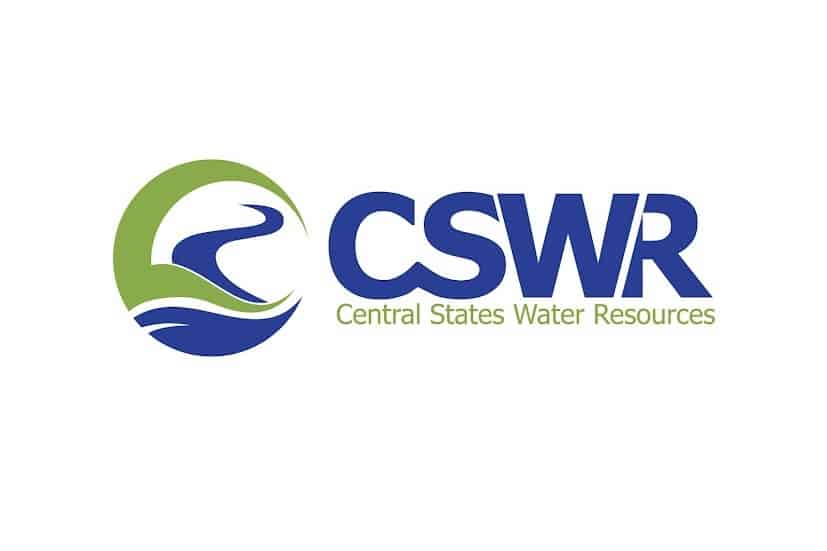Residents in Cherokee Village impacted by a 100 percent increase in utility costs met with representatives of Central States Water Resources (CSWR), the parent company of St. Joseph’s Glen (SJG).
In July of this year, more than 200 customers connected to the system of SJG received a letter informing them their utility cost would be increasing from $30 to $60 in August of this year.
The meeting opened with comments from property owner and co-organizer of the meeting Barbara Hawbaker who explained how the meeting came to be.
She explained she and her husband own a townhouse in Cherokee Village which was one of the properties impacted by the rate hike.
“…This letter was sent July with the effective date in August, so it was kind of short notice. Many of us are upset about this so I sent a protest petition to the president of St. Joseph’s Glen.. I attended the zoom meeting held and at that meeting I asked quite a few questions and some of them were not answered. They didn’t have the information,” Hawbaker said.
She went on to explain a short time later, she received a call from a representative of CSWR, requesting a meeting be set between the company and the community.
Case Manager Aaron Silas and Regional Manager Carl Stevens with CSWR were present to answer questions from property owners and those impacted by the unexpected increase. Michele Martise, a public relations specialist was also present to take note of resident concerns.
Resident Ed Soja was first to question and simply started the conversation by inquiring what the reason for the increase was.
Silas said CSWR had recently taken ownership of the water system under SJG and that it needed repairs.
“When we took over, it was run by an owner operator and had quite a few violations associated with it for with E.coli and fecal matter being discharged into the environment,” Silas said. “Central States acquired that and made some investment. We got it and got some professional operators in place and made upgrades to make sure that violations ceased. The rate increase is a culmination of the operating expenses and capital improvements of the system coming to fruition.”
Silas acknowledged the company was aware the system was defunct at the time of purchase in 2020.
When asked for specific numbers regarding hookups to the line, neither representative could give certain figures but estimated it to be around 250 customers both residential and commercial combined.
It was noted at this time, businesses hooked to the system pay the same rate as residential customers but that would soon change and it was likely another rate increase would be seen by residential customers in the not to distant future.
When asked for clarification, Silas said he believed there were approximately 13 systems in Arkansas operated by CSWR and noted all of the Arkansas systems had seen an increase several of which were increased from the previous rate to $76 from whatever their initial rate was.
One property owner, Greg Neiss stepped to the podium to address his concerns that the majority of those impacted are retired and on fixed incomes.
“There doesn’t seem to be any consideration for the fact 90 percent of the population [connected to the system] are retired individuals and on a fixed income… a 100 percent increase is a bulk. Was there any consideration ever given to that or the consideration of staging it in,” Neiss asked.
Silas said when his company or one of the companies under CSWR take over a system, it is typically in poor condition.
“When we take over a system, it’s not been invested in for a long time. We come in takeover, do the reinvestment that’s necessary and because we took over in 2020, we had to bring the system into compliance. I can’t speak for the previous owner but the rate increase should have happened over the lifespan of the system but they didn’t raise the money needed to reinvest in the system and make sure it wasn’t polluting the environment,” Silas said. “When we took over there was quite a bit to do in a short period of time.”
Neiss asked consideration be given to the position of the customers, breaking down figures and recommending the increase be scaled back from $60 to $45.
Silas stated there were programs to help pay for water and utility bills through the Arkansas Department of Environmental Quality (ADEQ).
He again stated the rate increase was to cover operational expenses and capital improvements, however; when asked how much money had been invested by the company in capital improvement and operational expenses, neither Silas nor Stevens could answer.
“We use the same financial model under the regulation of multiple utility companies across the country. To cover the operational expenses and the investments and that’s how it’s calculated to cover the expenses and investments,” Silas said.
Cherokee Village Councilman Steve Thompson was next to speak.
“On this system, you have 13 in Arkansas, are you going to be, or have you been preparing a rate case with Arkansas for any of your systems in Arkansas,” Thompson asked.
Silas stated no formal filing would be made as CSWR and all of the companies under it do not, even collectively, meet the regulations for the Public Service Commission (PSC). Simply stated even collectively, they’re too small for oversight.
“They do not regulate the company because we don’t meet their threshold for the regulation. We’ve met with the PSC several times but the threshold is not yet met,” Silas said.
Thompson noted Silas had made reference to the Arkansas systems both individually and as a collective and asked if any analyzation had been done for the recovery time for the investment made in Cherokee up until now.
“We follow a national standard for the appreciation of assets and it’s on average over 20 years. The lifespan of the system we’re trying to capture the return on the assets,” Silas said.
Silas also said there were many factors to be looked at and it is viewed as a collective and the cost of repairs for each system is spread over the entirety of the customer base for the 13 companies and not any particular system. As systems grow, theoretically, costs would decrease.
“In Missouri a system we’re operating is about to see a decrease. I can’t speak to whether the capital improvement will overtake or not be enough to warrant an increase or decrease. There are a lot of factors in that,” Silas said. “[In Cherokee] There will likely be another rate increase in the future.”
In answering other questions, Silas noted there were no direct employees of the company in Arkansas and that SJG was not the only company under the umbrella of CSWR. He could not answer questions directly relating to how much of the $5.1 million referenced to be invested in Arkansas by SJG was used to make improvements in Cherokee Village.
When asked where the system was located, Silas turned the floor over to Stevens who stated it was somewhere between or around Lake Thunderbird and Lake Cherokee.
Resident Jonathan Rhodes stepped to the podium to give residents an accurate location which is in fact on the opposite side of Kia Kima near Griffin Park.
John Norberg also spoke asking when the work had been done as no one in the Village seemed to have noticed the level of work being implied.
“This one has a lot of customers on it and smaller ones cost more for them. Are we paying to have theirs done? We’re paying for someone else to get their system fixed. When did it get worked on,” Norberg asked.
Stevens explained the system was out of compliance and in Cherokee Village the violations were more specifically ADEQ violations.
Neither CSWR nor SJG pulled or applied for permits with the city to conduct work on the system located within the City of Cherokee Village.
Rhodes thanked the representatives for being present to answer questions and conduct business in Cherokee Village while providing a needed service. He also briefly discussed opportunities for growth. Rhodes also recommended in the future the company work to better communicate with residents about work being done on systems and upcoming changes to systems including rates and the impact they would have.
“I would ask you take back to your headquarters you need to do more a effective job of communicating what you’re doing .. sending a letter out saying 100 percent increase.. if you’re anticipating a hike, increase or decrease you need to communicate more effectively. A letter saying you made a $5 million dollar investment and oh by the way you’re seeing a 100 percent increase doesn’t do it,” Rhodes said.
“What were learning today is.. if you didn’t share the cost our cost would be higher. there is potential benefit to sharing the cost across the state because it could be higher. I think communicating more actively about the improvements your making would be beneficial.”
Councilman Rob Smith echoed the sentiments of Rhodes stating it would be beneficial to residents who are already struggling to be better informed but was appreciative CSWR was present and had made improvements to the systems.
The meeting was then adjourned.
Lauren is a an award-winning journalist who decided after 10 years of newspaper experience to venture out. Hallmark Times was born.






